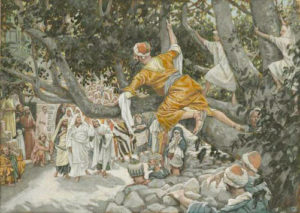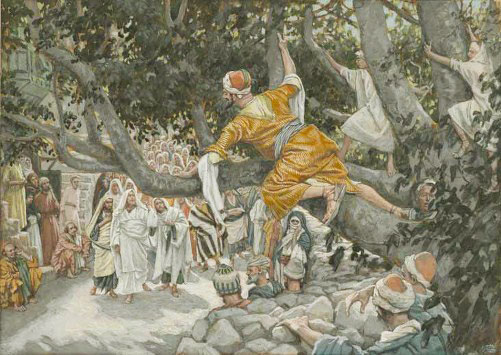
Central Idea: God’s loving goodness. Doctrine: God is love. Practical Application: Divine reading.
To view Lectionary 153, click here.
Reading 1 Wis 11:22-12:2
Before the LORD the whole universe is as a grain from a balance
or a drop of morning dew come down upon the earth.
But you have mercy on all, because you can do all things;
and you overlook people’s sins that they may repent.
For you love all things that are
and loathe nothing that you have made;
for what you hated, you would not have fashioned.
And how could a thing remain, unless you willed it;
or be preserved, had it not been called forth by you?
But you spare all things, because they are yours,
O LORD and lover of souls,
for your imperishable spirit is in all things!
Therefore you rebuke offenders little by little,
warn them and remind them of the sins they are committing,
that they may abandon their wickedness and believe in you, O LORD!
- God is the omnipotent creator and sustainer of all that exists.
- Everything he creates is good in itself and God loves it.
- God is omniscient and infinitely merciful. However, our minds are confused, our wills are weak, and we suffer with disordered passions, so we sin. So, only “little by little” does God show us our true condition, because we could not stand it if we saw who we are all at once.
- If God suddenly removed every sinner from the world, who would remain?
Responsorial Psalm Ps 145:1-2, 8-9, 10-11, 13, 14
R. I will praise your name for ever, my king and my God.
I will extol you, O my God and King,
and I will bless your name forever and ever.
Every day will I bless you,
and I will praise your name forever and ever.The LORD is gracious and merciful,
slow to anger and of great kindness.
The LORD is good to all
and compassionate toward all his works.Let all your works give you thanks, O LORD,
and let your faithful ones bless you.
Let them discourse of the glory of your kingdom
and speak of your might.The LORD is faithful in all his words
and holy in all his works.
The LORD lifts up all who are falling
and raises up all who are bowed down.
- How would Zacchaeus pray this psalm after his encounter with Christ?
- Because God’s salvation has come to him today, he would pray this and mean every word, especially God’s merciful grace that held back his anger toward Zacchaeus’ sins in anticipation of his repentance.
- Each one of us can pray this psalm as fervently, because of Christ’s salvation.
Reading 2 2 Thes 1:11-2:2
Brothers and sisters:
We always pray for you,
that our God may make you worthy of his calling
and powerfully bring to fulfillment every good purpose
and every effort of faith,
that the name of our Lord Jesus may be glorified in you,
and you in him,
in accord with the grace of our God and Lord Jesus Christ.We ask you, brothers and sisters,
with regard to the coming of our Lord Jesus Christ
and our assembling with him,
not to be shaken out of your minds suddenly, or to be alarmed
either by a “spirit,” or by an oral statement,
or by a letter allegedly from us
to the effect that the day of the Lord is at hand.
- When will Christ return?
- Paul tells the Thessalonians to pay no attention to people who claim to know something about this.
- Instead our aim must be cooperate with grace to do what God wants of us now.
- What does God want of us now? He wants us to cooperate with him to make us into what he wants to make us into. As St. Iranaeus put it, “The glory of God is man fully alive” (CCC 294).
Alleluia Jn 3:16
God so loved the world that he gave his only Son,
so that everyone who believes in him might have eternal life.
Gospel Lk 19:1-10
At that time, Jesus came to Jericho and intended to pass through the town.
Now a man there named Zacchaeus,
who was a chief tax collector and also a wealthy man,
was seeking to see who Jesus was;
but he could not see him because of the crowd,
for he was short in stature.
So he ran ahead and climbed a sycamore tree in order to see Jesus,
who was about to pass that way.
When he reached the place, Jesus looked up and said,
“Zacchaeus, come down quickly,
for today I must stay at your house.”
And he came down quickly and received him with joy.
When they all saw this, they began to grumble, saying,
“He has gone to stay at the house of a sinner.”
But Zacchaeus stood there and said to the Lord,
“Behold, half of my possessions, Lord, I shall give to the poor,
and if I have extorted anything from anyone
I shall repay it four times over.”
And Jesus said to him,
“Today salvation has come to this house
because this man too is a descendant of Abraham.
For the Son of Man has come to seek
and to save what was lost.”
- Our Lord changed his plans to pass through Jericho when he saw Zacchaeus, and the short fellow changed his life when he saw Christ. Christ’s appearance, his body language, his words, and his tone of voice must have reached Zacchaeus with a flood of grace. And that grace must have met something in Zacchaeus, an openness to receive that grace, just as he then received Christ into his home and gave away his wealth.
- We can love our neighbor if we receive the love of God.
- Blatant sinners can sometimes make a more dramatic conversion to God than the supposed “righteous.”
- The sinner has fully committed himself to the good he thinks can be gotten by means of his bad course of action, yet he knows by bitter experience it is not so.
- On the other hand, those who are trying to be good might have to try to hide even from themselves their own disordered attachments.
- We can all take great comfort in this Gospel, that “the Son of Man came to seek and to save what was lost,” because we know we too need to be found and saved by God.
Doctrine: God is love
- God is love. His actions are loving because love is his very being and nature.
- The Trinitarian secret about God’s love revealed in Christ and in the sending of the Holy Spirit is that “God himself is an eternal exchange of love, Father, Son, and Holy Spirit, and he has destined us to share in that exchange” (CCC 221).
- God’s love is everlasting. As God declared through Jeremiah, “I have loved you with an everlasting love” (Jer 31:3) (CCC 220).
- Some images of God’s love for us are a father for his son, a mother for her children, a bridegroom for his beloved (CCC 219).
Practical Application: Divine Reading
- One of the best things we can do for ourselves and others is to dwell on God’s loving goodness in meditative prayer. We can do this with any of this Sunday’s readings.
- In our Catholic tradition, meditation is not an emptying the mind but a filling of it with God’s Word.
- Lectio divina or divine reading is a four-step method for reading the Sacred Scriptures.
- First one reads the Scriptural passage slowly, focusing on what the Word of God is literally saying (lectio).
- Then, one reflects on the passage, on what it means in itself and how it applies to one’s life (meditatio).
- Then one talks to God about what he or she has learned or experienced in meditating about it (oratio).
- Finally one listens silently for God’s response (contemplatio).
- In this way, we not only dwell on God’s goodness, we also dwell in it.
The Homiletic Director suggests these further catechism points and themes for this week’s lectionary readings.
- CCC 293-294, 299, 341, 353: the universe created for God’s glory
- CCC 1459, 2412, 2487: reparation

Leave a Reply